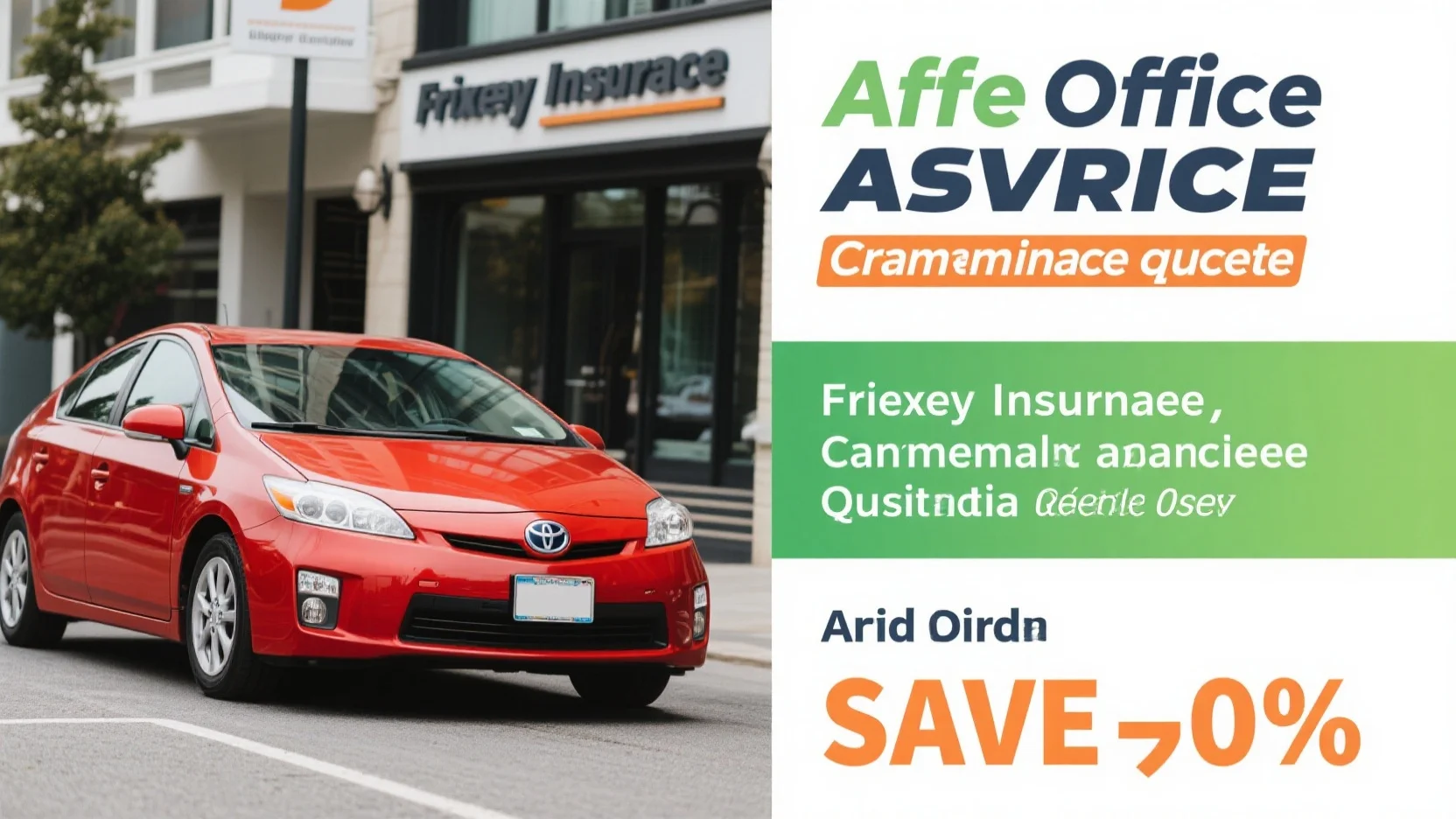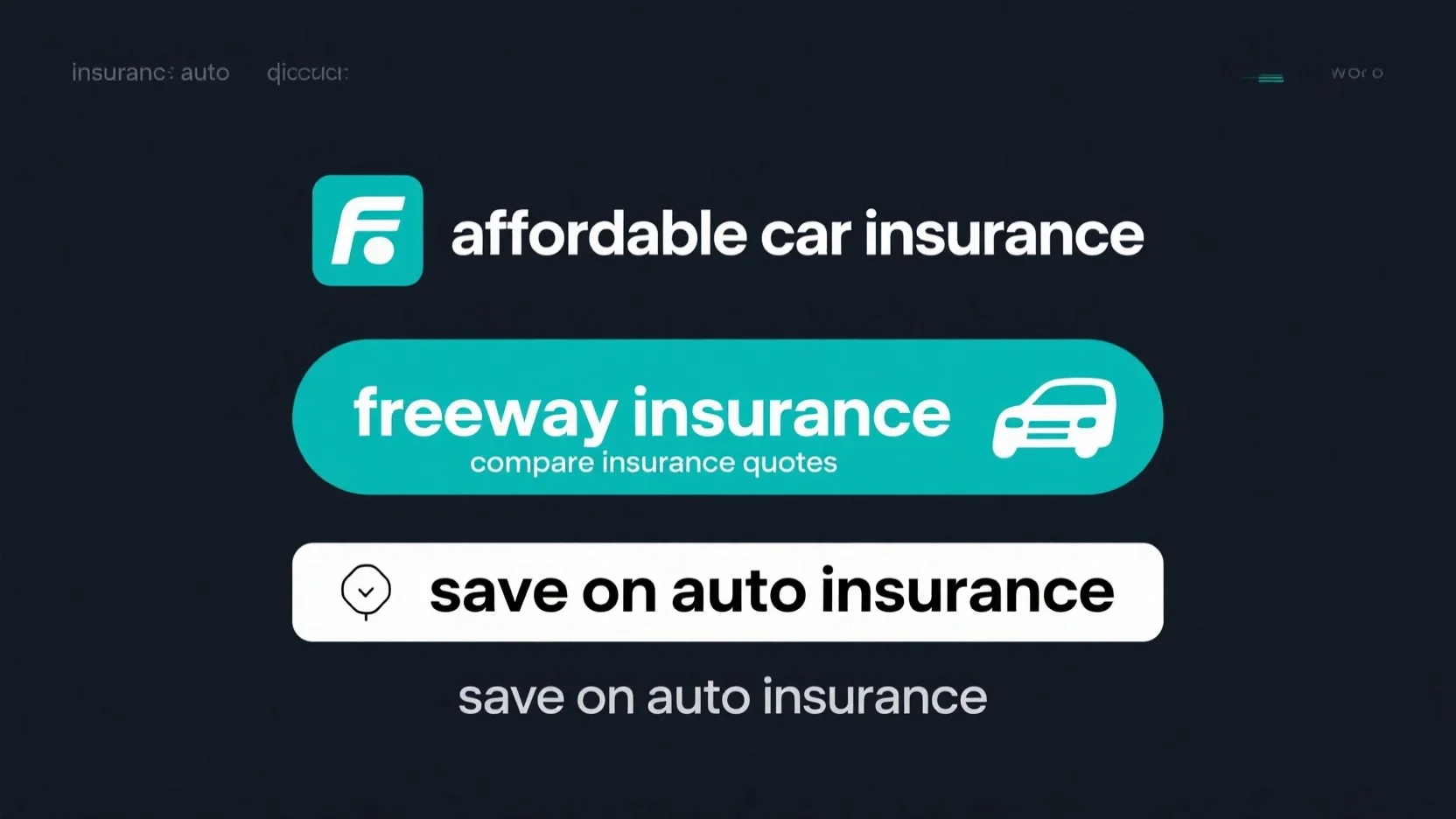
Car insurance isn’t just a legal requirement—it’s your safeguard against unexpected expenses on the road. For first-time car owners, budget-conscious drivers, and anyone seeking better coverage, finding the right freeway insurance can feel overwhelming. With so many providers, policies, and premium options to choose from, how do you ensure you’re getting the best deal without sacrificing protection?
This guide will break down everything you need to know about freeway insurance. From essential tips to save money on coverage to understanding the factors that impact your premiums, you’ll leave with the knowledge to make an informed choice—and keep more money in your pocket.
What is Freeway Insurance and Why Do You Need It?
Before we get into the tips, let’s start with the basics.
Freeway insurance refers to the car insurance policies provided by companies like Freeway Insurance, which specialize in affordable auto insurance for a wide variety of drivers. Whether you’re a new driver, have a less-than-perfect driving history, or are simply shopping on a budget, this type of insurance is designed to fit a range of needs.
Why is it important?
- Legal Requirements: Most states require drivers to carry a minimum level of liability insurance.
- Financial Protection: It covers expenses from accidents, theft, or damages, often saving you thousands of dollars in the long run.
- Peace of Mind: Knowing you’re protected allows you to focus on enjoying the road ahead.
Tips for Saving Money on Freeway Insurance (Without Compromising Coverage)
Saving money on freeway insurance doesn’t mean skimping on essential coverage. Here’s how you can get the best bang for your buck:
1. Bundle Your Policies
If you own a home or rent an apartment, consider bundling your car insurance with home or renters insurance. Many providers offer discounts when you purchase more than one policy from them. It’s a quick way to save without compromising coverage.
2. Maintain a Good Driving Record
The better your driving history, the lower your premiums. Insurance companies view safe drivers as less risky, so avoiding accidents and tickets can lead to substantial savings over time.
3. Opt for a Higher Deductible
Choosing a higher deductible—what you pay out of pocket before insurance kicks in—can reduce your monthly premium. Just make sure you have enough savings set aside to cover the deductible in case of an accident.
4. Ask About Discounts
Many freeway insurance providers offer discounts for various reasons:
- Good Student Discounts: If you’re a student with good grades, you may qualify for a lower premium.
- Low Mileage Discounts: If you drive less than the average number of miles annually, you could save.
- Safe Vehicle Discounts: Owning a car with advanced safety features like anti-lock brakes and airbags may make you eligible for discounts.
5. Use Telematics Programs
Some insurance companies offer telematics programs, where you install a device in your car to monitor your driving habits. Safe driving behavior—like avoiding sudden braking or speeding—can lead to reduced insurance rates.
Comparing Insurance Providers Effectively
Not all freeway insurance providers are created equal. To ensure you’re getting the best deal:
Gather Quotes From Multiple Companies
Start by gathering detailed quotes from at least three different providers. Look beyond the premium price; compare what’s covered, excluded, and any added benefits.
Use Online Comparison Tools
Websites and apps like The Zebra or NerdWallet make it easy to compare multiple freeway insurance quotes in one place, saving you time and effort.
Check Reviews and Ratings
Reviews from other customers can give you an honest insight into the company’s customer service, claims process, and overall value.
Verify Financial Stability
Use trusted sources, such as AM Best or Moody’s, to check the financial strength and health of the insurance provider. A financially secure company is more likely to honor claims promptly.
Add-Ons and Extras: What Do You Really Need?
Freeway insurance policies often include several add-ons and extras, but not all of them are necessary. Here’s a breakdown of what you might need:
Absolute Essentials:
- Liability Coverage: Covers damages or injuries you cause in an accident.
- Uninsured/Underinsured Motorist Coverage: Protects you if you’re hit by a driver without adequate insurance.
Optional Add-Ons to Consider:
- Roadside Assistance: A lifesaver if you face car troubles on the go.
- Rental Car Reimbursement: Handy if your car needs repairs after an accident.
- Gap Insurance: If your car is totaled, this covers the difference between the car’s value and what you owe on your loan.
Extras You Can Live Without:
While tempting, some extras like excessive personal accident coverage may duplicate what’s already offered by your health insurance.
Understand Your Policy Terms and Conditions
Insurance jargon can be confusing, but understanding your policy is critical. Here are a few key terms to familiarize yourself with:
- Premium – The amount you pay (monthly or yearly) for coverage.
- Deductible – The amount you pay out of pocket before insurance covers the rest.
- Exclusions – Situations or damages not covered under your policy.
- Limits – The maximum amount your insurance will pay for a covered claim.
- Endorsements – Custom changes you can make to your policy for additional coverage.
Take the time to read your policy carefully and contact your provider with any questions.
How Your Lifestyle Impacts Your Premiums
Your lifestyle and driving habits could have a significant effect on your freeway insurance costs. Here’s how:
- Urban vs. Rural Living: City drivers face higher premiums due to higher rates of traffic and accidents.
- Commute Miles: The longer your daily commute, the greater the risk, leading to higher premiums.
- Vehicle Type: Luxury cars often come with higher premiums due to expensive repairs; opting for a more affordable vehicle can help save money.
- Young Drivers: If you’re a younger driver (under 25), you might face higher premiums due to your risk profile. Adding an experienced driver to your policy could help balance costs.
Make Smart Freeway Insurance Decisions
Choosing the right freeway insurance doesn’t need to be complex. By understanding the basics, exploring discounts, and carefully comparing providers, you can secure a policy that fits your budget and driving needs.
Remember, well-informed decisions are your greatest ally in finding affordable yet comprehensive coverage.
Have questions about finding the best insurance rates? Get in touch with your freeway insurance provider today or explore an online comparison tool to get started. A little time and effort now can save you big down the road.





